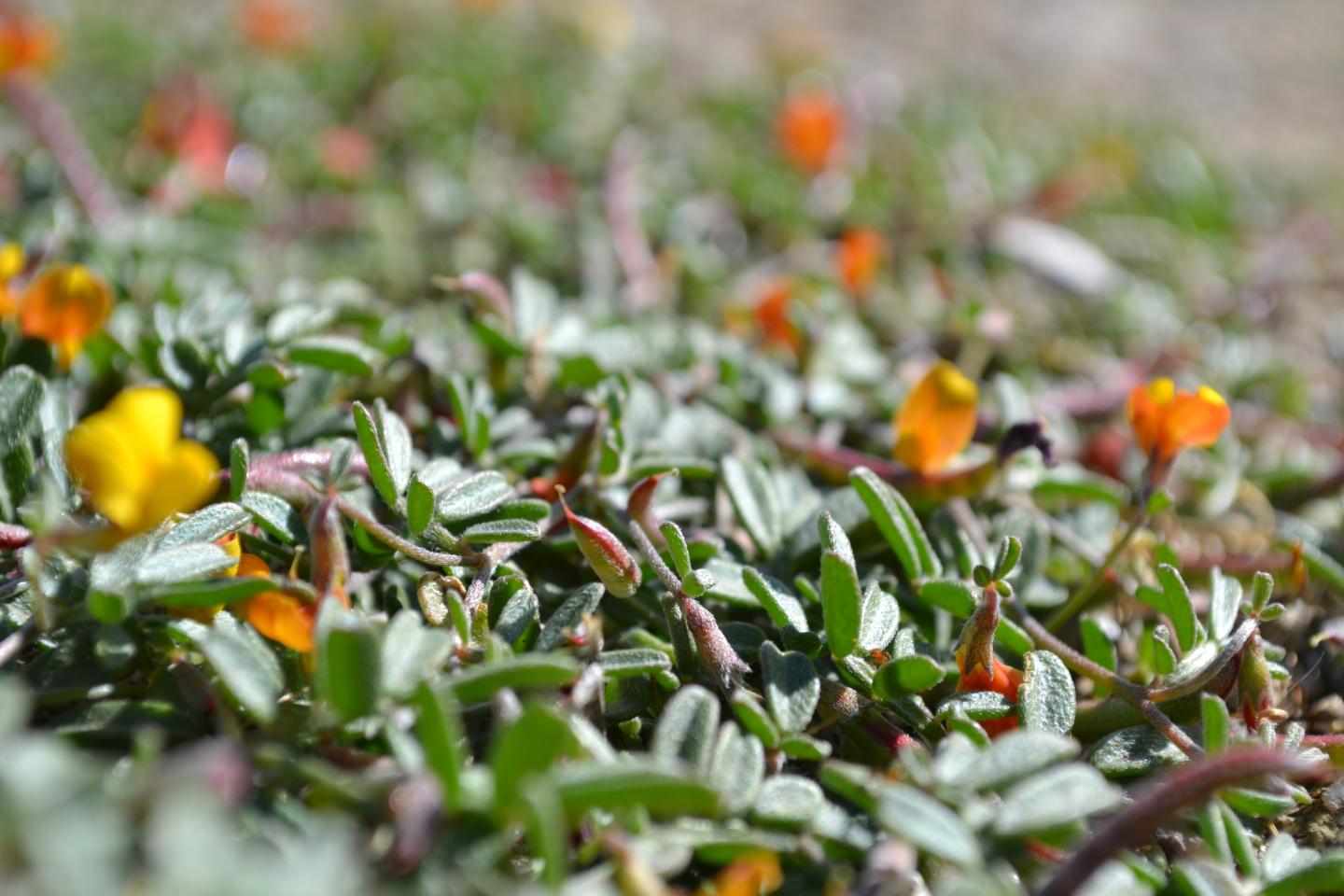UC Riverside research focused on interaction between nitrogen-fixing bacteria and their hosts

Credit: Sachs lab, UC Riverside
Mutualisms, which are interactions between members of different species that benefit both parties, are found everywhere — from exchanges between pollinators and the plants they pollinate, to symbiotic interactions between us and our beneficial microbes.
Natural selection — the process whereby organisms better adapted to their environment tend to survive and produce more offspring — predicts, however, that mutualisms should fall apart. Individuals that gain from the cooperation of others but do not reciprocate (so-called cheaters) should arise and destabilize mutualisms. Yet to date, surprisingly little evidence of such cheating or destabilization exists.
A team of biologists at the University of California, Riverside, has now found strong evidence of this cheating. Focusing on the interaction between nitrogen-fixing bacteria, or rhizobia, and their legume hosts spanning about 530 miles of California habitat, the researchers found that natural selection in their study populations favors cheating rhizobia.
The study, appearing in Ecology Letters, is the first to uncover cheater strains in natural populations and show how natural selection favors them.
The researchers used a previously published database to quantify the landscape abundance of different rhizobial strains. They focused on naturally occurring populations of rhizobia in the genus Bradyrhizobium and the native annual plants, Acmispon strigosus, that these bacteria inhabit. Within these datasets they found that the fewer benefits the rhizobia provide to their host plants, the more common the rhizobia are.
“Our data show that natural selection favors cheating rhizobia, and support predictions that rhizobia can often subvert plant defenses and evolve to exploit hosts,” said Joel Sachs, a professor of biology in the Department of Evolution, Ecology & Organismal Biology, who led the research team.
Sachs explained that beneficial bacteria are increasingly appreciated to be key for human health as well as the productivity of crops and livestock. Little is understood, however, about how much these bacterial services vary in natural systems and the forces that modulate them.
“In crop plants, in particular, agronomists have attempted — and failed — for several decades to design crop biofertilizers based on beneficial bacteria,” he said. “Similar challenges have been faced in applying bacteria in other host systems — probiotics, for example, which rarely affect host microbes. Our dataset suggests a potential flaw in these approaches; the bacteria, with their own evolutionary interests, can destabilize these interactions.”
In their paper, the researchers show how benefits of bacterial symbionts vary over space and time, and how rapidly these systems can evolve.
“We often view the services of bacteria as fixed, but this is not at all true,” Sachs said. “Just as each human varies a great deal in almost any trait we can measure, bacterial populations are even more highly variable. Understanding this variation and its drivers will be key to usefully harnessing these bacteria for our own purposes.”
Already, his team is actively working to better understand how beneficial bacteria can be applied to improve plant growth. Preliminary data show that it is crucial to carefully select among bacterial variants to avoid using harmful strains.
“Simply applying beneficial bacteria to a crop is often not going to be sufficient since exploitative strains are expected to be lurking within these populations,” Sachs said.
###
He was joined in the research by Kelsey A. Gano-Cohen (co-first author), Camille E. Wendlandt (co-first author), Peter J. Stokes, Mia A. Blanton, Kenjiro W. Quides, Avissa Zomorrodian, and Eunice S. Adinata.
The research was supported by a grant to Sachs from the National Science Foundation.
Media Contact
Iqbal Pittalwala
[email protected]




